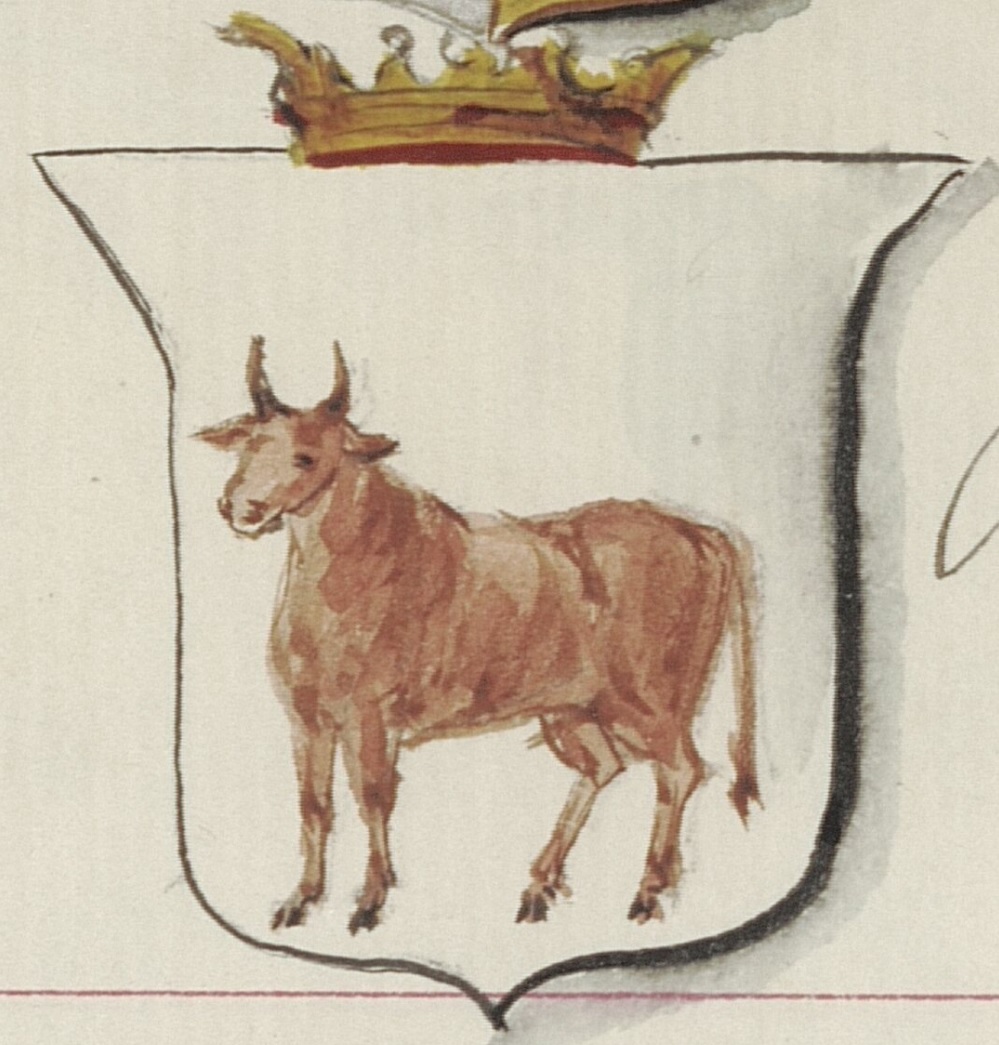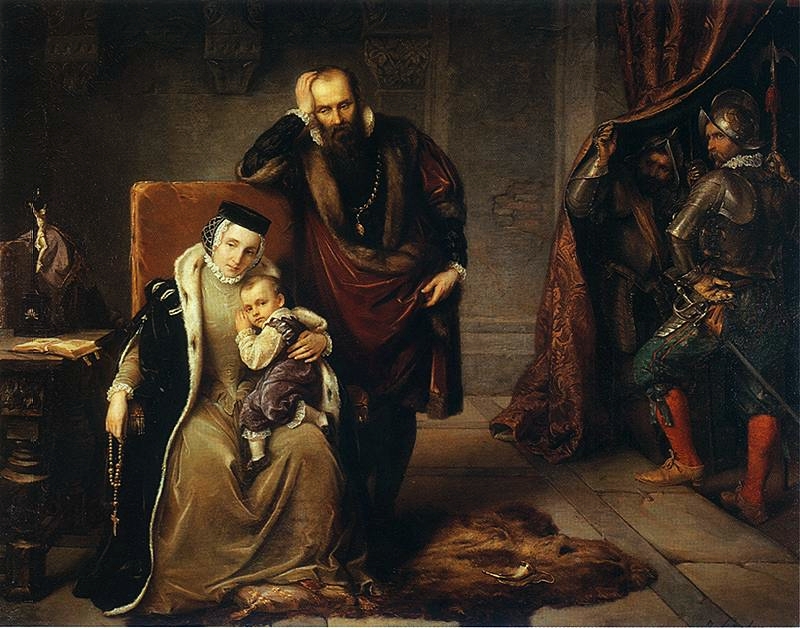|
Ujazd, Tomaszów Mazowiecki County
Ujazd is a town in Tomaszów Mazowiecki County, Łódź Voivodeship, in central Poland. It is the seat of the gmina (administrative district) called Gmina Ujazd. It lies approximately north-west of Tomaszów Mazowiecki and south-east of the regional capital Łódź. It is located within the historic Łęczyca Land. History Ujazd was granted town rights in 1428 by Polish King Władysław II Jagiełło thanks to efforts of Piotr Tłuk, swordbearer of Łęczyca. It was a private town of Polish nobility, including the Dunin, Szczawiński, Denhoff and Ostrowski families, administratively located in the Brzeziny County in the Łęczyca Voivodeship in the Greater Poland Province of the Kingdom of Poland. Its royal privileges were confirmed by Polish Kings Casimir IV Jagiellon, Sigismund III Vasa, and Stanisław August Poniatowski, in 1476, 1615 and 1786, respectively. In the 17th century, Primate of Poland Andrzej Olszowski, native of nearby Olszowa erected the Baroque Saint ... [...More Info...] [...Related Items...] OR: [Wikipedia] [Google] [Baidu] |
Countries Of The World
The following is a list providing an overview of sovereign states around the world with information on their status and recognition of their sovereignty. The 206 listed states can be divided into three categories based on membership within the United Nations System: 193 member states of the United Nations, UN member states, 2 United Nations General Assembly observers#Present non-member observers, UN General Assembly non-member observer states, and 11 other states. The ''sovereignty dispute'' column indicates states having undisputed sovereignty (188 states, of which there are 187 UN member states and 1 UN General Assembly non-member observer state), states having disputed sovereignty (16 states, of which there are 6 UN member states, 1 UN General Assembly non-member observer state, and 9 de facto states), and states having a political status of the Cook Islands and Niue, special political status (2 states, both in associated state, free association with New Zealand). Compi ... [...More Info...] [...Related Items...] OR: [Wikipedia] [Google] [Baidu] |
Władysław II Jagiełło
Jogaila (; 1 June 1434), later Władysław II Jagiełło ()He is known under a number of names: lt, Jogaila Algirdaitis; pl, Władysław II Jagiełło; be, Jahajła (Ягайла). See also: Names and titles of Władysław II Jagiełło. was Grand Duke of Lithuania (1377–1434) and then King of Poland (1386–1434), first alongside his wife Jadwiga until 1399, and then sole ruler of Poland. Born a pagan, he converted to Catholicism in 1386 and was baptized as Władysław in Kraków, married the young Queen Jadwiga, and was crowned King of Poland as Władysław II Jagiełło. In 1387, he converted Lithuania to Catholicism. His own reign in Poland started in 1399, upon the death of Queen Jadwiga, lasted a further thirty-five years, and laid the foundation for the centuries-long Polish–Lithuanian union. He was a member of the Jagiellonian dynasty in Poland that bears his name and was previously also known as the Gediminid dynasty in the Grand Duchy of Lithuania. The dynast ... [...More Info...] [...Related Items...] OR: [Wikipedia] [Google] [Baidu] |
Primate (bishop)
Primate () is a title or rank bestowed on some important archbishops in certain Christian churches. Depending on the particular tradition, it can denote either jurisdictional authority (title of authority) or (usually) ceremonial precedence (title of honour). Roman Catholic Church In the Western Church, a primate is an archbishop—or, rarely, a suffragan or exempt bishop—of a specific (mostly metropolitan) episcopal see (called a ''primatial see'') who has precedence over the bishoprics of one or more ecclesiastical provinces of a particular historical, political or cultural area. Historically, primates of particular sees were granted privileges including the authority to call and preside at national synods, jurisdiction to hear appeals from metropolitan tribunals, the right to crown the sovereign of the nation, and presiding at the investiture (installation) of archbishops in their sees. The office is generally found only in older Catholic countries, and is now ... [...More Info...] [...Related Items...] OR: [Wikipedia] [Google] [Baidu] |
Stanisław August Poniatowski
Stanisław II August (born Stanisław Antoni Poniatowski; 17 January 1732 – 12 February 1798), known also by his regnal Latin name Stanislaus II Augustus, was King of Poland and Grand Duke of Lithuania from 1764 to 1795, and the last monarch of the Polish–Lithuanian Commonwealth. Born into wealthy Polish aristocracy, Poniatowski arrived as a diplomat at the Russian imperial court in Saint Petersburg in 1755 at the age of 22 and became intimately involved with the future empress Catherine the Great. With her connivance, he was elected King of Poland by the Polish Diet in September 1764 following the death of Augustus III. Contrary to expectations, Poniatowski attempted to reform and strengthen the large but ailing Commonwealth. His efforts were met with external opposition from neighbouring Prussia, Russia and Austria, all committed to keeping the Commonwealth weak. From within he was opposed by conservative interests, which saw the reforms as a threat to their traditional l ... [...More Info...] [...Related Items...] OR: [Wikipedia] [Google] [Baidu] |
Sigismund III Vasa
Sigismund III Vasa ( pl, Zygmunt III Waza, lt, Žygimantas Vaza; 20 June 1566 – 30 April 1632 N.S.) was King of Poland and Grand Duke of Lithuania from 1587 to 1632 and, as Sigismund, King of Sweden and Grand Duke of Finland from 1592 to 1599. He was the first Polish sovereign from the House of Vasa. Religiously zealous, he imposed Roman Catholicism across the vast realm, and his crusades against neighbouring states marked Poland's largest territorial expansion. As an enlightened despot, he presided over an era of prosperity and achievement, further distinguished by the transfer of the country's capital from Kraków to Warsaw. Sigismund was the son of King John III of Sweden and his first wife, Catherine Jagiellon, daughter of King Sigismund I of Poland. Elected monarch of the Polish–Lithuanian Commonwealth in 1587, he sought to unify Poland and Sweden under one Catholic kingdom, and when he succeeded his deceased father in 1592 the Polish–Swedish union was created. ... [...More Info...] [...Related Items...] OR: [Wikipedia] [Google] [Baidu] |
Casimir IV Jagiellon
Casimir IV (in full Casimir IV Andrew Jagiellon; pl, Kazimierz IV Andrzej Jagiellończyk ; Lithuanian: ; 30 November 1427 – 7 June 1492) was Grand Duke of Lithuania from 1440 and King of Poland from 1447, until his death. He was one of the most active Polish-Lithuanian rulers, under whom Poland, by defeating the Teutonic Knights in the Thirteen Years' War recovered Pomerania, and the Jagiellonian dynasty became one of the leading royal houses in Europe. The great triumph of his reign was bringing Prussia under Polish rule. The rule of Casimir corresponded to the age of "new monarchies" in western Europe. By the 15th century, Poland had narrowed the distance separating it from western Europe and become a significant factor in international relations. The demand for raw materials and semi-finished goods stimulated trade, producing a positive balance, and contributed to the growth of crafts and mining in the entire country. He was a recipient of the English Order of the Gart ... [...More Info...] [...Related Items...] OR: [Wikipedia] [Google] [Baidu] |
Privilege (law)
A privilege is a certain entitlement to immunity granted by the state or another authority to a restricted group, either by birth or on a conditional basis. Land-titles and taxi medallions are examples of transferable privilege – they can be revoked in certain circumstances. In modern democratic states, a ''privilege'' is conditional and granted only after birth. By contrast, a ''right'' is an inherent, irrevocable entitlement held by all citizens or all human beings from the moment of birth. Various Examples of old common law privilege still exist – to title deeds, for example. Etymologically, a privilege (''privilegium'') means a "private law", or rule relating to a specific individual or institution. The principles of conduct that members of the legal profession observe in their practice are called legal ethics. Boniface's abbey of Fulda, to cite an early and prominent example, was granted '' privilegium'', setting the abbot in direct contact with the pope, bypassing th ... [...More Info...] [...Related Items...] OR: [Wikipedia] [Google] [Baidu] |
Polish Academy Of Sciences
The Polish Academy of Sciences ( pl, Polska Akademia Nauk, PAN) is a Polish state-sponsored institution of higher learning. Headquartered in Warsaw, it is responsible for spearheading the development of science across the country by a society of distinguished scholars and a network of research institutes. It was established in 1951, during the early period of the Polish People's Republic following World War II. History The Polish Academy of Sciences is a Polish state-sponsored institution of higher learning, headquartered in Warsaw, that was established by the merger of earlier science societies, including the Polish Academy of Learning (''Polska Akademia Umiejętności'', abbreviated ''PAU''), with its seat in Kraków, and the Warsaw Society of Friends of Learning (Science), which had been founded in the late 18th century. The Polish Academy of Sciences functions as a learned society acting through an elected assembly of leading scholars and research institutions. The Academy h ... [...More Info...] [...Related Items...] OR: [Wikipedia] [Google] [Baidu] |
Greater Poland Province, Crown Of The Kingdom Of Poland
, subdivision = Province , nation = Poland , year_start = , event_end = Third Partition of Poland , year_end = , image_map = Prowincje I RP.svg , image_map_caption = , capital = Poznań , political_subdiv = 13 voivodeships and one duchy , common_name = Greater Poland Province ( pl, Prowincja Wielkopolska) was an administrative division of the Crown of the Kingdom of Poland from 1569 until 1795. The name of the province comes from the historic land of Greater Poland. The Greater Poland Province consisted initially of twelve voivodeships (after 1768 thirteen voivodeships)Lucjan Tatomir, ''Geografia ogólna i statystyka ziem dawnej Polski'', Drukarnia "Czasu" W. Kirchmayera, Kraków, 1868, p. 147 (in Polish) and one duchy: # Brześć Kujawski Voivodeship # Chełmno Voivodeship # Gniezno Voivodeship, est. in 1768 # Inowrocław Voivodeship # Kalisz Voivodeshi ... [...More Info...] [...Related Items...] OR: [Wikipedia] [Google] [Baidu] |
Łęczyca Voivodeship
Łęczyca Voivodeship ( pl, Województwo łęczyckie) was a unit of administrative division and local government in Poland from the 14th century until the partitions of Poland in 1772–1795. It was part of Province of Greater Poland, and its capital was in Łęczyca. The voivodeship had the area of 4,080 square kilometers, divided into three counties. Local sejmiks took place at Łęczyca. The city of Łódź, which until the 19th century was a small town, for centuries belonged to Łęczyca Voivodeship. The voivodeship was created by King Wladyslaw Lokietek, out of the territory of Duchy of Łęczyca, which had been established after the 1138 Testament of Bolesław III Krzywousty. It had five senators in the Senate of the Kingdom of Poland (since 1569 the Polish–Lithuanian Commonwealth). These were: Voivode of Łęczyca, Castellan of Łęczyca, Castellan of Brzeziny, Castellan of Inowlodz, and Castellan of Konary. At the sejmiks, local nobility elected four deputies to the Se ... [...More Info...] [...Related Items...] OR: [Wikipedia] [Google] [Baidu] |
Duninowie
The Duninowie also Łabędzie was a Polish knight family. ''Możnowładcy'' (magnates) in medieval Poland. History The progenitor of the family was Piotr Włostowic, a voivode and adviser of Duke Bolesław III Wrymouth. Notable members * Piotr Włostowic - progenitor, castellan of Wrocław, and a ruler (''możnowładca'') of a part of Silesia * Świętosław – son of Piotr Włostowic (?-1153) * Sulisław of Cracow (d. 9 April 1241) commanding an army at the Battle of Legnica * Piotr (?-1198), Archbishop of Gniezno - probably the fundator of the Gniezno Doors * Piotr Dunin z Prawkowic (ca. 1415-1484) - led the Polish army to victory over the Teutonic Knights in the Battle of Świecino at Malbork castle * Stanisław Dunin-Karwicki (1640-1724) - politician and political writer * Marcin Dunin-Sulgostowski (1774-1842) - Primate of Poland 1831-1842 * Jerzy Sewer Dunin-Borkowski (1856 - 1908) count, heraldry, social activist, politician, landowner. * Stanisław Jan Borkowski ( ... [...More Info...] [...Related Items...] OR: [Wikipedia] [Google] [Baidu] |

.jpg)


